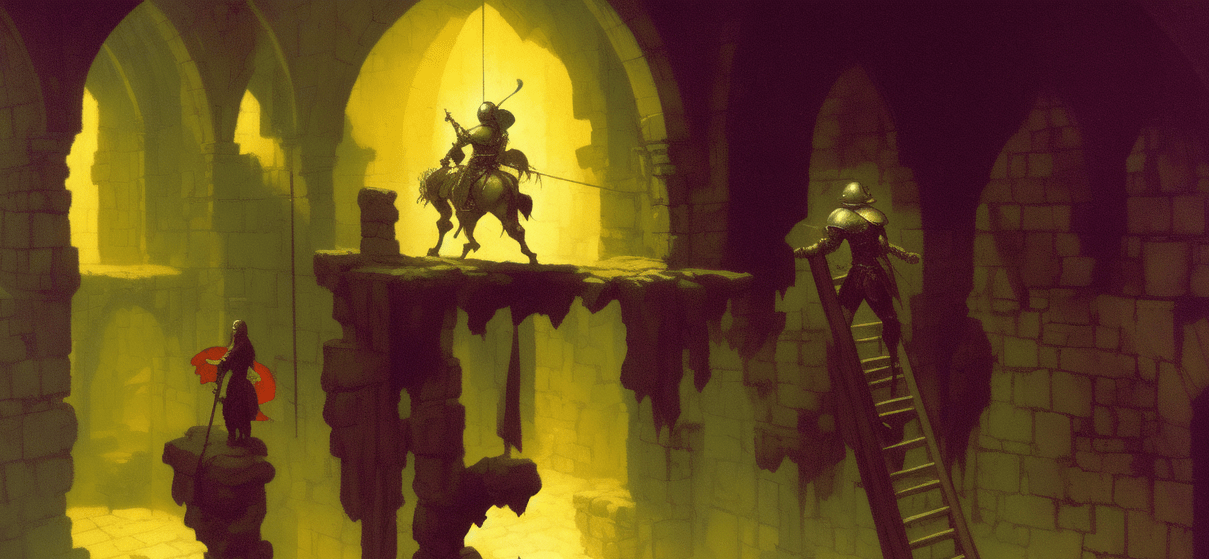Up front, yes, that title is a touch hyperbolic. Obviously, if you’re making rules that you use in your games then absolutely please keep on doing that. I’m not here to judge or shame anyone who just likes making rules systems! You do you, and do what you love. But, I am here to loudly complain on the internet (as is tradition) about the fact that maybe, just maybe, the OSR community is sometimes re-inventing wheels that are still functioning just fine.
In the years since I’ve been casually–and more recently not-so-casually–following the OSR I’ve become inundated with new rules systems. It seems like every other week we’re getting new hacks, spinoffs, re-imaginings, retroclones, and entirely new systems hitting Kickstarter, DTRPG, Itch.io, and various blogs. Things had died down for a bit in recent memory as groups started to slowly fall into the various major categories that featured broad, general compatibility with one another and/or older systems.
In fact, it’s one of the great strengths of things like OSE, OSRIC, BFRPG, and similar that they maintain high degrees of compatibility with many decades of content. OSE/BX in particular seemed to become the “standard” choice in a lot of corners of the OSR. But ever since the OGL drama there has been a new crop of people and companies hammering out their own rules systems that may or may not treat compatibility as a primary concern. Or, sometimes, claim compatibility but present systems that are only marginally compatible with a very specific (and sometimes unstated) set of rules.
And, again, that’s fine. I understand that the OGL debacle rocked a lot of boats and soured a lot of relationships, but sometimes it seems that compatibility got jettisoned along the way.
Initially, many of these rules systems existed as retroclones or legally distinct re-imaginings because the original books were difficult to find or hard to understand. The purpose wasn’t to reinvent the wheel, it was to continue making wheels available.
Let’s get specific: I have a weekly group that I GM for, an on-demand group that I GM for, and the intentions of putting together a third monthly get-together for yet more GMing. And it was almost a joke in my group that I would show up each week excitedly talking about a new rules system. Digging into new systems was how I spent a lot of my hobby time. I even invented a system within my campaign world where my players could move between “planes” that were actually just different rules systems, so we could explore them without feeling like we’ve left our main campaign in the dust. I even went so far as to implement systems for how they’d bring back XP and other goodies from those worlds once our excursions were over.
There was much celebrating and nodding and discussion of how cool the whole idea was. And then no one ever bothered to engage with the newly minted rules-hopping system. Because, as it turns out, my players were there to play. They wanted to sit down and comfortably enjoy a game without having to re-learn everything from the ground up or fuss with me explaining radical rules changes.
There’s a comfort that comes with regularly sitting down to the same system. Rounding off its rough edges, learning to enjoy what initially looked like strange design decisions, and adding your own house rules. And, maybe more importantly, there’s a comfort that comes with applying new things to your rules system of choice that click into place because you’re already deeply familiar with the underpinnings. This, to me, is as inherent to the base idea of what the OSR is: a style of play that emphasizes player choice and de-emphasizes rules lawyering.
But bluelander, you might be saying, what’s the harm? Let people create what they want to create!
And to that I say: Well, yeah, of course. People should make what they want. Please keep doing that.
But also: some of these projects seem like they would be better served creatively if they didn’t have to spend so much time making blueprints of wheels as carts happily roll by. When creation doesn’t necessitate hours and hours of creating systems and rules we can instead focus on flavor, story, aesthetic, art, and so many other categories that are often the entire reason I find myself drawn to a specific project in the first place. I want agnostic adventures, general settings, maps, spell lists, classes, monsters. I want to dig into the flavor and content of a new project and not have to worry about how I’m going to convert it into something usable in my system of choice.
Skerples recently released the fantastic Monster Overhaul and in the introduction they said “a GM doesn’t need to be told that bears live in caves.” I would extrapolate that out and say that a GM doesn’t need to be told how thief skills work or how to calculate a critical hit. We already have a system for that, and outside of FOMO and new-and-shiny syndrome it’s not generally something we need to be handed for a hundredth time.
But what many GMs do lack is inspiration and creative energy. We only have so much before we run out of juice and need to go…find some juice? That came out strange, but hopefully you get what I mean.
Personally, I want to see more items like Monster Overhaul, Tome of Adventure Design, and The Book of Gaub. Things that inspire me to create and design within my system of choice. I don’t need to be told how to run a game or how a monster performs a saving throw, but I do need help showing up week-to-week with interesting content to present at the table. Make it adherent to existing rules, make it system agnostic, make it an inspirational tome of general good ideas, but please, please don’t make it Yet Another Rules System.

